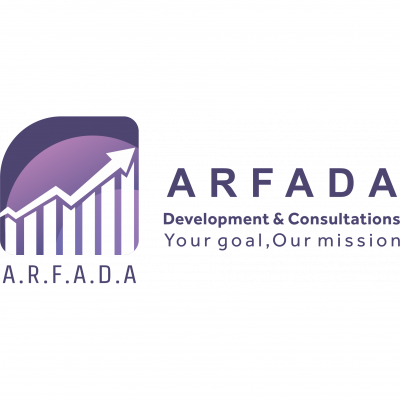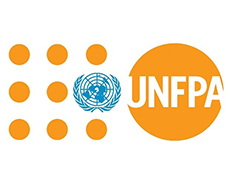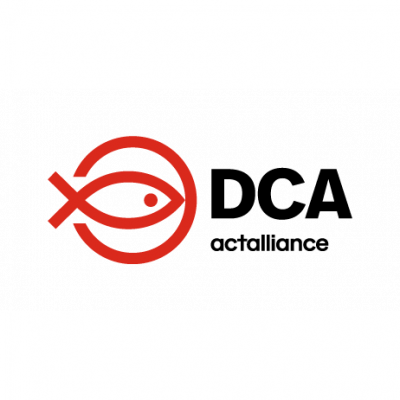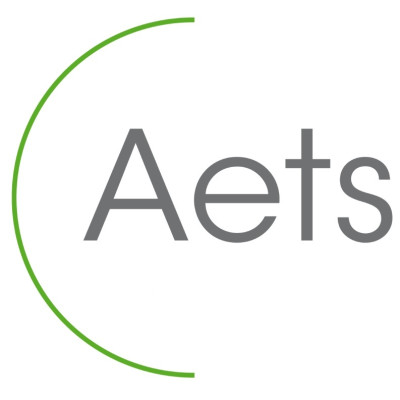Details
Description
Background
UN Women, grounded in the vision of equality enshrined in the Charter of the United Nations, works for the elimination of discrimination against women and girls; the empowerment of women; and the achievement of equality between women and men as partners and beneficiaries of development, human rights, humanitarian action and peace and security.
For a seventh consecutive year, Afghanistan remains among the deadliest places in the world to be a civilian and faces an emerging level of human rights violation.
Afghanistan is one of the world’s most complex emergencies, and the world’s largest humanitarian crisis. Afghan people are grappling with the impact of conflict, poverty, economic decline, and natural disasters. In this context, Afghan women and girls face unique vulnerabilities and require urgent support as gender inequality is interwoven with conflict dynamics and humanitarian needs. Since the takeover by Taliban in August 2021, Afghanistan has witnessed a progressive erasure of women’s rights and freedoms, through both formal and informal edicts, messages and practices. The 24 December 2022 edict banning Afghan women from NGOs and INGOs and the escalation of the ban in April 2023 to Afghan women working with the UN has further amplified this restricted space from women and women CSOs creating operational conditions of uncertainty. It is essential that Afghan women and girls can continue to shape the development of their country, and that their gains are protected. UN Women remains fully committed to supporting Afghan women and girls and to putting them at the center of the global response to the crisis in Afghanistan. In the evolving context UN Women continues to reconfigure and adapt its programming to be responsive to ensure the full spectrum of rights of Afghan women and girls are met.
UN Women’s programming approach in Afghanistan is informed by analysis of the political, economic and humanitarian situation, risks to and capacities of partner organizations, and needs of Afghan women and girls. UN Women Afghanistan currently has five key programme priorities: (1) Gender in Humanitarian Action, (2) Ending Violence Against Women, (3) Women’s Economic Empowerment, and (4) Women, Peace and Security. Given the operational context in country, UN Women has also strengthened its sub offices through presence across 5 Sub Offices to ensure a more localized approach to its programming. Working across the thematic pillars and sub offices, the post holder will provide substantive and hands on support to ensure coherence, relevance and robustness of the programme commitments under the Strategic Note 2023-25 for the UN Women Afghanistan Country Office (ACO).
Under the Gender in Humanitarian Action mandate, UN Women provides UN system wide leadership on gender responsive humanitarian action, through its presence in the HCT. UN Women is the permanent co-lead of the Gender in Humanitarian Action (GiHA) to provide technical, advisory and programmatic support to the HCT and the Inter Cluster Coordination Team (ICCT) and is the Secretariate to the Women’s Advisory Group to the Afghanistan HCT. At the programmatic level GiHA portfolio manages a range of ‘for women by women’ programmatic modalities to meet the needs of crises effected Afghan women and girls, including those on the move, forced returns and internally displaced.
Reporting to the Deputy Country Representative (Programmes)_ and working closely with the GiHA coordination and Access Specialist, the Humanitarian Specialist will oversee the development and oversight of the humanitarian programmes, coordinate with the 5 sub offices, provide capacity building to establish and strengthen partnerships, and develop relevant knowledge products on humanitarian action for the Afghanistan Country Office. This function will require closely working the Deputy Country Representative (Operations) as well with the head of the Programme Management Support Unit (PMSU) to support timely progress against mutually agreed results frameworks and performance indicators to meet agreed targets and results.
Duties and Responsibilities
1. Programme development for the Afghanistan Country Office anchored in the Strategic Note 2023-2025
- Oversee the development of country programme documents on humanitarian action and humanitarian response
- Provide technical inputs to cluster plans;
- Provide advice on contextualizing/ localizing programme documents, response strategies, and knowledge products;
- Develop the strategic documents, policy papers, talking points and similar materials highlighting ACO’s policy and programmatic positions for information and presentation to internal and external stakeholders.
- Ensure efficient utilization of resources, adherence to deliver rates, in alignment with the Country Office's goals and vision
- Develop and support drafting of concept notes, proposals and similar materials in close coordination with other relevant functions and sub offices
- Identify entry points on humanitarian programming across the humanitarin-basic human needs and peace nexus
- Provide support and coordinate with the heads of sub offices in identifying and operationalizing localized gender responsive humanitrain programming opportunities to ensure UN Women remains responsive to emerging crises
- Coordinate monitoring and reporting for humanitarian action in collaboration with programme teams.
- Develop, implement and mentor the team and provided targetted capacity buildingto advance their professional growth;
- Provide technical support to partners on implementation of humanitarian action;
- Provide technical policy advice to programme/ project managers/ specialists in thematic areas related to humanitarian programming
2. Strategic and technical support to Humanitarian Country Team, ICCT and cluster, sub clusters and technical working groups:
- Work closely with the GiHA coordination and Access specialist to advance HCT accountability on implementing gender equality commitments.
- Support the inter-cluster coordination Team (ICCT), clusters, sub clusters and technical working group with gender analysis, capacity building and technical assistance.
- Support strategic planning process by contributing to the development of HNRPss
- Advocate and identify opportunities for the engagement and meaningful participation of local women’s organizations and platforms in humanitarian coordination mechanisms, particularly at sub national levels
- Lead specific efforts in mainstreaming gender and protection in disaster preparedness, response and recovery effortsof other clusters and relevant working groups, including and durable solutions working group
- Advocate for the engagement and participation of local women led /women focused organizations and civil society networks in humanitarian coordination mechanisms
- Support the ACO management to make informed and strategic decisions relating to gender responsive humanitarian programming
3. Establish and strengthen strategic partnerships with stakeholders, regional/ international actors and development partners
- Identify and guide the ACO on opportunities to develop and advance gender responsive humanitarian programming through innovative partnerships and advocacy across stakeholders. and provide necessary guidance to team members and sub offices in that regard.
- Build and maintain close liaisons with relevant donors and other actors supporting efforts towards humanitarian action;
- Produce periodic updates and briefs on regional/country development situation to be used by stakeholders, CO, RO, HQ
4. Manage and support the resource mobilization strategy for humanitarian action
- Participate in the implementation, monitoring and periodic updating of the resource mobilization strategy on humanitarian action;
- Research and analyze information on donors; prepare substantive briefs on possible areas of cooperation.
- Lead and manage the regular technical briefings on programme updates with donors
5. Oversee advocacy and communication of humanitarian action
- During emergency response, support and lead the development of communication and advocacy messages and strategies on key gender and protection concerns;
- Manage and contribute to the collection of stories and lessons learnt related to the overall GIHA programming and develop knowledge management products that highlight programme adaptations and effectiveness on gender equality and women’s empowerment.
Competencies
Core Values:
- Respect for Diversity
- Integrity
- Professionalism
Core Competencies:
- Awareness and Sensitivity Regarding Gender Issues
- Accountability
- Creative Problem Solving
- Effective Communication
- Inclusive Collaboration
- Stakeholder Engagement
- Leading by Example
Please visit this link for more information on UN Women’s Values and Competencies Framework: https://www.unwomen.org/sites/default/files/Headquarters/Attachments/Sections/About%20Us/Employment/UN-Women-values-and-competencies-framework-en.pdf
Functional Competencies
- Substantive knowledge and experience related to current policies and practices in the fields of gender equality, protection and humanitarian action, including humanitarian coordination;
- Strong knowledge of the region;
- Excellent networking skills;
- Ability to interact with donors, identify and analyze trends, opportunities and threats to fundraising;
- Ability to perform qualitative and quantitative policy research;
- Ability to advocate and provide policy advice;
- Excellent analytical skills;
- Ability to write policy papers, speeches, briefings;
- Strong knowledge of programme development, implementation, results based management and reporting;
Required Skills and Experience
Education and certification:
- Master’s degree or equivalent in human rights, gender, humanitarian action, international relations, international development, international law or other social science fields is required;
- A first-level university degree in combination with two additional years of qualifying experience may be accepted in lieu of the advanced university degree;
- A project/programme management certification (such as PMP®, PRINCE2®, or MSP®) would be an added advantage;
Experience:
- At least 7 years progressively responsible experience in designing and managing humanitarian programmes, with a particular; focus on gender and protection in emergencies;
- Substantive and technical experience in inter-agency coordination, preferably protection cluster coordination, and/or ProCap/GenCap in disaster settings;
- Experience in policy analysis and strategic planning;
- Experience working with, and building partnerships with governments, donors and civil society organizations internationally and in the field;
- Experience working with the UN is an asset; and
- Experience working in the region is an asset;
Language Requirements:
- Fluency in English is required;
- Knowledge of the other UN official working language is an asset;
- Knowledge of Dari and / Pashto will be an asset;
Application:
All applications must include (as an attachment) the completed UN Women Personal History form (P-11) which can be downloaded from Application and recruitment process | About us: Careers at UN Women | UN Women – Headquarters Kindly note that the system will only allow one attachment. Applications without the completed UN Women P-11 form will be treated as incomplete and will not be considered for further assessment.
Note:
In July 2010, the United Nations General Assembly created UN Women, the United Nations Entity for Gender Equality, and the Empowerment of Women. The creation of UN Women came about as part of the UN reform agenda, bringing together resources and mandates for greater impact. It merges and builds on the important work of four previously distinct parts of the UN system (DAW, OSAGI, INSTRAW, and UNIFEM), which focused exclusively on gender equality and women's empowerment.
Inclusion Statement:
At UN Women, we are committed to creating a diverse and inclusive environment of mutual respect. UN Women recruits employs, trains, compensates, and promotes regardless of race, religion, color, sex, gender identity, sexual orientation, age, ability, national origin, or any other basis covered by appropriate law. All employment is decided on the basis of qualifications, competence, integrity, and organizational need.
If you need any reasonable accommodation to support your participation in the recruitment and selection process, please include this information in your application.
UN Women has a zero-tolerance policy on conduct that is incompatible with the aims and objectives of the United Nations and UN Women, including sexual exploitation and abuse, sexual harassment, abuse of authority, and discrimination. All selected candidates will be expected to adhere to UN Women’s policies and procedures and the standards of conduct expected of UN Women personnel and will therefore undergo rigorous reference and background checks. (Background checks will include the verification of academic credential(s) and employment history. Selected candidates may be required to provide additional information to conduct a background check.)





